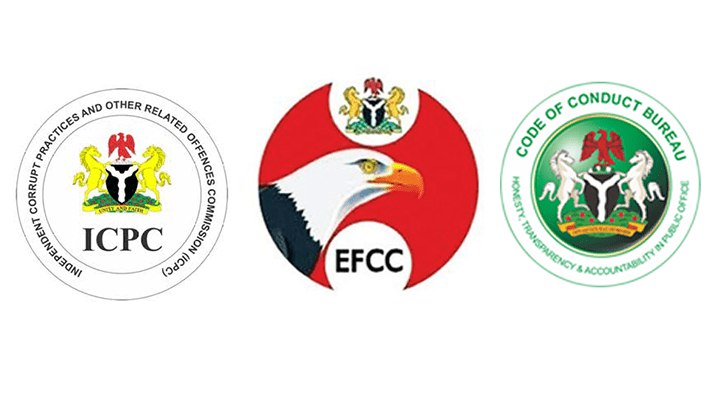EFCC, ICPC, CCB hailed on International Anti-Corruption Day
The Civil Society Legislative Advocacy Centre has applauded Nigeria’s anti-corruption agencies for their relentless efforts in combating corruption despite severe political control, limited resources, and personal risks.
Auwal Ibrahim Rafsanjani, CISLAC’s executive director, made the commendation in a statement on Monday in commemoration of 2024 International Anti-Corruption Day.
He commended operatives of the Economic and Financial Crimes Commission, the Independent Corrupt Practices and Other Related Offences Commission, and the Code of Conduct Bureau.Mr Rafsanjani said corruption had severely undermined Nigeria’s fight against insurgency and insecurity, diverting critical funds to bolster national defence into private hands.
According to him, the consequences of such corruption are devastating.Rafsanjani said corruption had also negatively impacted Nigerians’ access to basic amenities.
Mr Rafsanjani added that corruption had led to food insecurity and a decline in education standards and has negatively affected the conditions of all internally displaced persons in several camps. He said corruption was also seen in the mismanagement of humanitarian aid, judiciary, public procurement, constituency projects, oil theft and economic sabotage, and tax administration and evasion.
Mr Rafsanjani explained that corruption in the banking sector has also enabled money laundering and terrorism financing.
He also decried failed transfers, lack of accountability in public funds that vanished through ghost projects, and real estate corruption that has led to a housing deficit.
According to him, political corruption in Nigeria had entrenched inefficiency, mismanagement, and a lack of accountability, hindering development and exacerbating inequality.
Tackling corruption in Nigeria, Mr Rafsanjani recommended strengthening institutional frameworks and autonomy.
Calling for comprehensive electoral reforms and monitoring, he said there was a need to revitalise the education sector, boost healthcare funding and enforce transparency in public procurement and constituency projects.
(NAN)














Post Comment